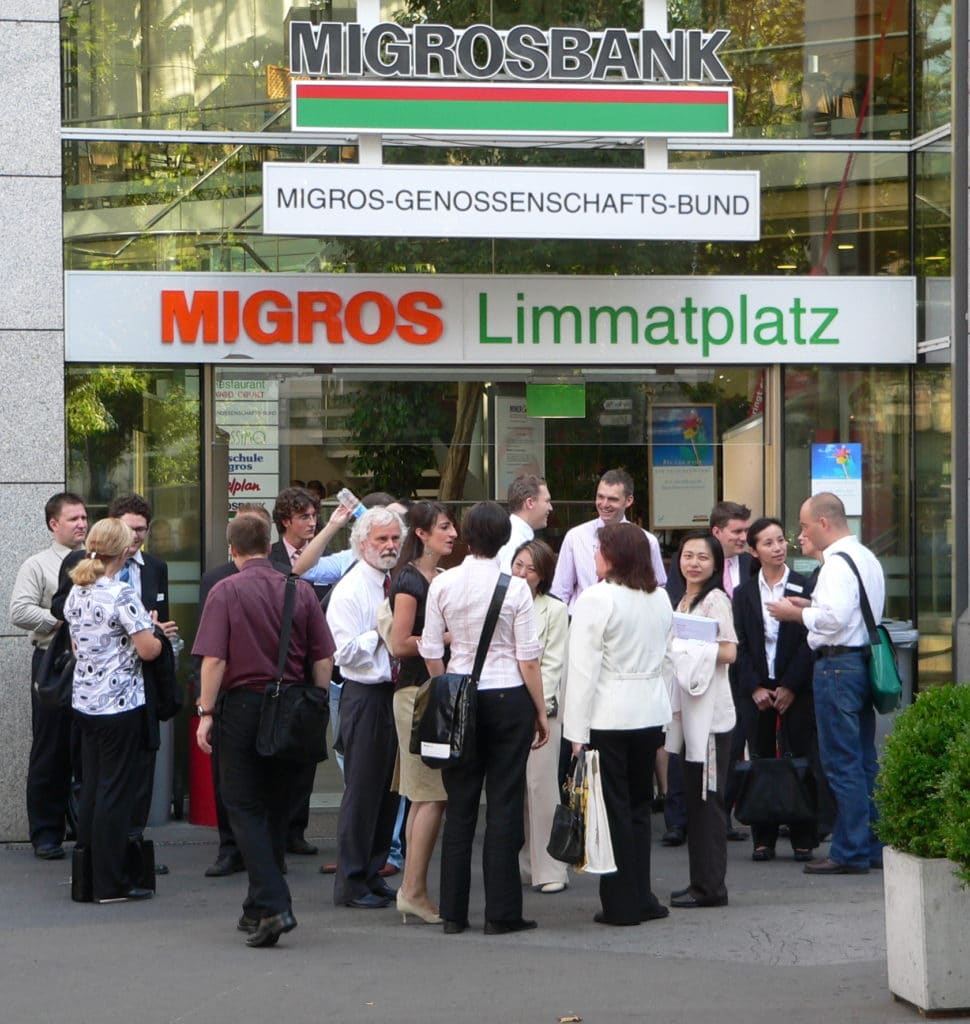Key learnings
0%

Visiting Fortune 500 conglomerate, Migros, in Switzerland
Participant learnings on our study tours include:
- how sustainable organisations differ profoundly in their leadership philosophy, culture and practice from others.
- understanding that important measures of organisational success require looking beyond traditional financial results to include long-term social and environmental outcomes.
- how to deliver significant competitive advantage by using proven sustainable leadership practices under different ownership structures and in different sectors.
- why sustainable leadership creates more resilient organisations and delivers superior outcomes over the long term.
- where other industries are heading given the current megatrends.
- how countries that are more accepting of sustainable leadership practices consistently outperform other countries, on a range of metrics.
Other learnings are driven by the interests of the tour group and reinforced and expanded upon during pre-tour and post-visit debriefings and discussions.
Our study tours differentiate themselves from industrial tourism by a strong focus on practical, deep level learning. This deep learning arises from the significant preparation in sustainable leadership and briefings on each host that our participants receive. In this way, discussions can take place at a high level during the time spent with the hosts.
